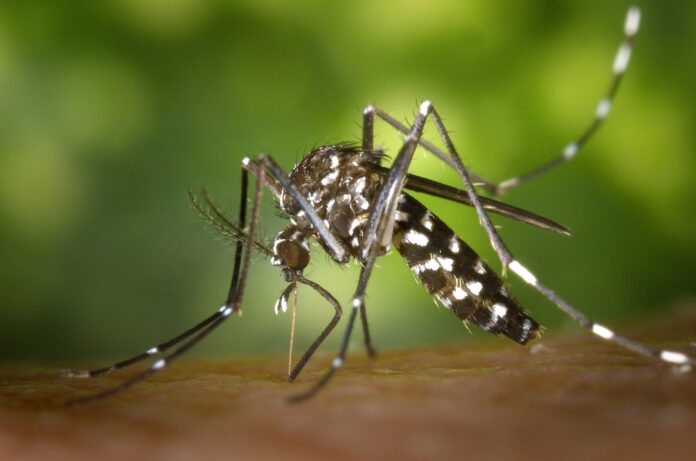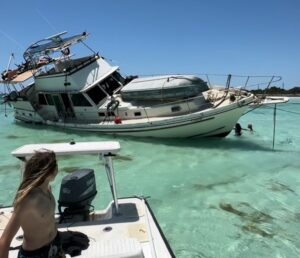
Two Upper Keys residents are recovering after contracting dengue fever from an Aedes aegypti mosquito bite.
The cases, as announced by the Florida Department of Health in Monroe County on June 29, come amid increased efforts by the Florida Keys Mosquito Control District (FKMCD) to combat the swarms of mosquitoes.
FKMCD activated its mosquito-borne disease response plan and increased mosquito control operations in Key Largo and Islamorada’s Upper Matecumbe Key. Health department and mosquito control officials are currently conducting more intense door-to-door mosquito inspections and trapping. Mosquito control vehicles and helicopters are administering larvicide and adulticide mosquito treatments.
“We really ratchet it up in response to any locally-originated dengue cases or any mosquito-borne cases,” said Chad Huff, FKMCD spokesman.
Widespread rains and winds out of the west, which bring salt marsh mosquitoes from the Everglades to the Keys, are factoring into the increased mosquito populations in the Upper Keys. Huff said the salt marsh mosquito is more a nuisance mosquito while the Aedes aegypti mosquitoes are the dengue spreaders.
“They prefer manmade containers to lay eggs in. As a result they thrive around humans,” he said regarding Aedes aegypti mosquitoes.
The recent dengue cases are the first witnessed since August 2020, when more than 40 confirmed dengue cases were reported in Key Largo.
Per the health department, dengue symptoms include flu-like illness, severe muscle aches and joint pain and rash. Symptoms will appear within 14 days after being bitten by an infected mosquito. Dengue fever is not contagious but is transmitted by the bite of an infected Aedes aegypti mosquito.
While there is no specific medication for treatment of a dengue infection, people who have dengue should use pain relievers with acetaminophen and avoid those containing aspirin. Rest, drinking plenty of fluids and consulting a physician are also encouraged. Those who develop vomiting and severe abdominal pain in the first 24 hours after the fever declines should go immediately to the hospital for evaluation.
FKMCD officials say public awareness is the front line of defense in the fight against mosquito-borne disease. Property owners can take a few simple steps to remove potential breeding sites, which include eliminating any standing water by turning over and removing empty pots, buckets, trash cans, recycle bins, pet bowls and children’s toys. People should also check tarps on boats or equipment and make sure gutters are clear and free of debris.
Regularly flush fresh water into bromeliads, hanging plants and bird baths. In addition, homeowners can prevent bites by wearing long-sleeved shirts and pants, use a proven mosquito repellent with Deet, and keep mosquitoes out of their residence by making sure that doors and windows are closed and screens are free of tears or holes.
Residents can place a service request with FKMCD by visiting www.keysmosquito.org or calling 305-292-7190. People can also visit floridahealth.gov and view the weekly mosquito-borne illness surveillance reports. Those experiencing any symptoms can call the health department in Monroe County at 305-317-9120.


















